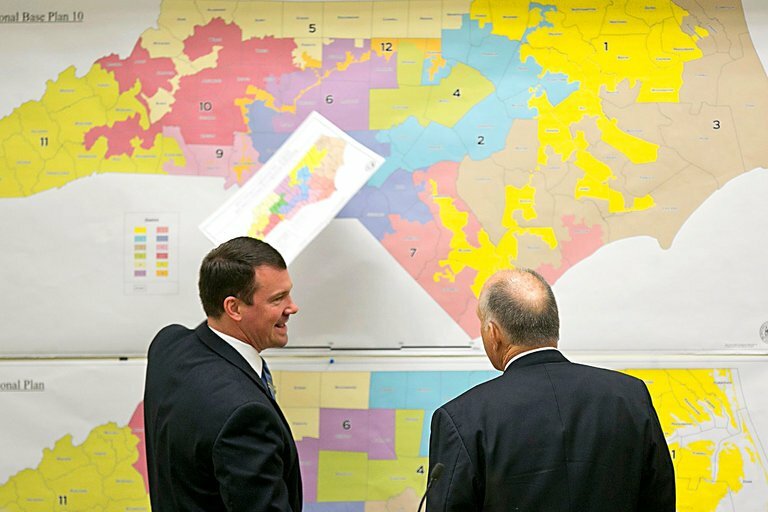We are still dealing with the fallout from the redistricting case that resulted in a panel of court-appointed special masters drawing North Carolina’s congressional districts last February.
Now that fallout has drifted all the way up to the United States Supreme Court.
The high court granted cert (agreed to hear the case) to plaintiff petitioners from the North Carolina General Assembly in Moore v. Harper. The plaintiffs’ main argument is that the Election Clause of the United States Constitution specifically and exclusive gives state legislatures the authority to set rules for elections to Congress (page 12):
The text of the Elections Clause is clear: “[t]he Times, Places and Manner of holding Elections for Senators and Representatives, shall be prescribed in each State by the Legislature thereof; but the Congress may at any time by Law make or alter such Regulations, except as to the Places of chusing Senators.” U.S. CONST. art. I, § 4,cl. 1 (emphasis added). “The Constitution provides that state legislatures—not federal judges, not state judges, not state governors, not other state officials—bear primary responsibility for setting election rules.” Democratic Nat’l Comm. v. Wisconsin State Legislature, 141 S. Ct. 28, 29 (2020) (Gorsuch, J., concurring in denial of application to vacate stay)
That argument would seem to conflict with the Supreme Court’s decision in Rucho v. Common Cause. Chief Justice John Roberts, who wrote the majority opinion, stated (page 31):
The States, for example, are actively addressing [claims of gerrymandering] on a number of fronts… Provisions in state statutes and state constitutions can provide standards and guidance for state courts to apply.
If the court finds for the General Assembly, it could make a broad ruling that would effectively cut state judiciaries out of the redistricting process entirely or a narrow ruling holding that state judiciaries can hold congressional districts to be unconstitutional under state constitutions but that the actual drawing of maps must be done by state legislatures or bodies state legislatures designate to draw districts.
There may also be implications for other election rules.
The high court will hear oral arguments later this year.


